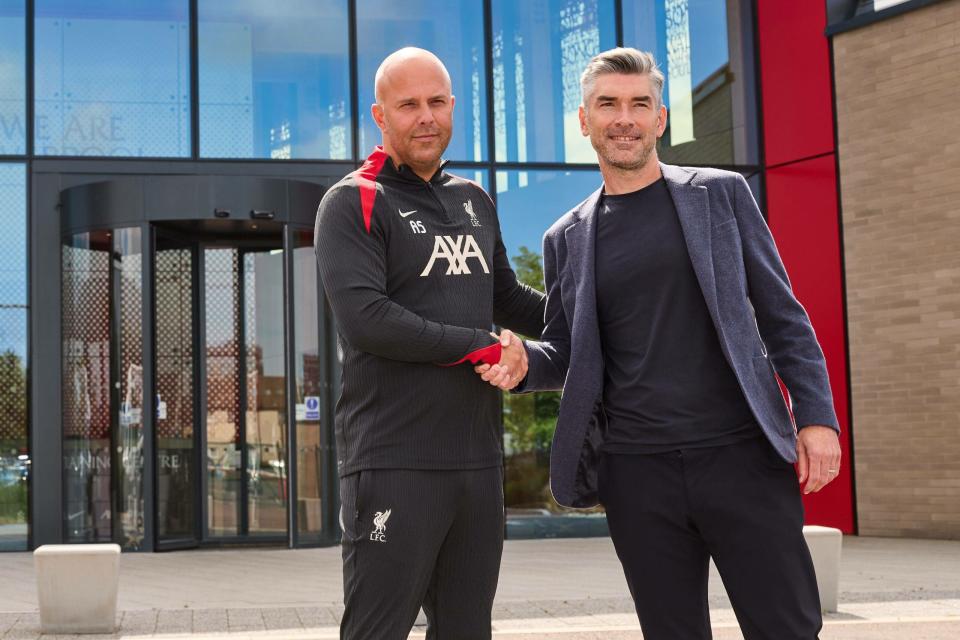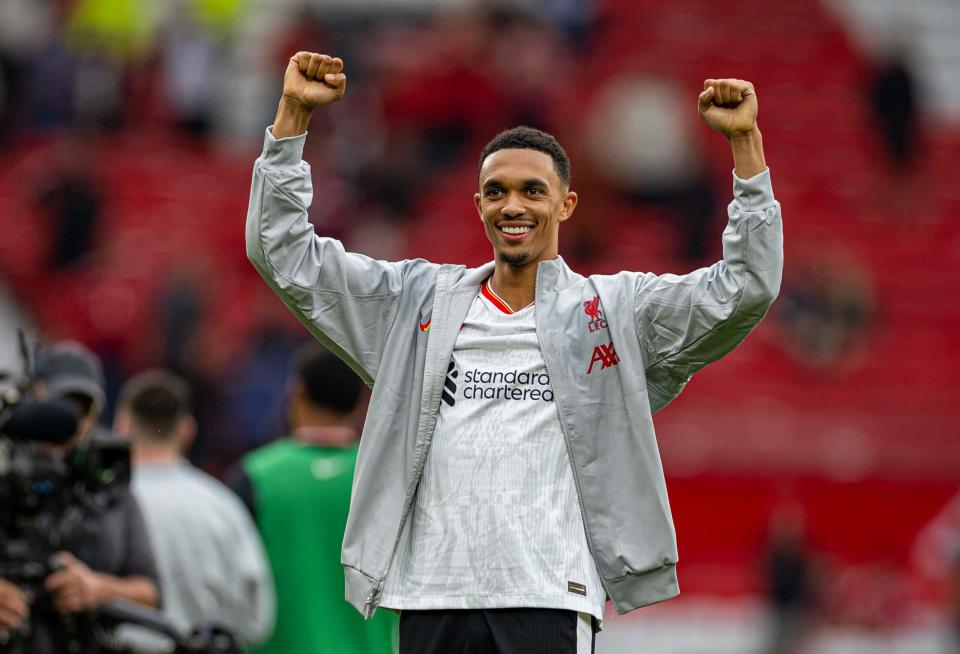“It Will Define his Success” – David Lynch Urges Liverpool Fans to be Patient Amid Contract Uncertainty

Richard Hughes, Liverpool’s Contract Strategy, and the Future of Key Players
In the latest Anfield Index podcast, journalist David Lynch discussed Liverpool’s strategic approach to player contracts under the guidance of new sporting director Richard Hughes. Speaking with host Dave Davis, Lynch explored the ongoing contract situations of some of Liverpool’s most influential players — Mohamed Salah, Virgil van Dijk, and Trent Alexander-Arnold — and Hughes’s approach to ensuring the club is prepared for the future. Rather than fixating on the specifics of individual contracts, Lynch suggested that fans should focus on how the club plans to eventually replace these players when the time comes.
Liverpool’s New Direction in Contract Management
Since taking over as Liverpool’s sporting director, Richard Hughes has been tasked with managing contract negotiations for several high-profile players. Lynch noted that Hughes brings a fresh perspective to Liverpool’s long-term planning, especially with crucial contracts looming. “People are understandably focused on the contracts of players like Salah and Van Dijk,” Lynch said, “but it’s the preparation for the next generation of players that will define Hughes’s success.”
This forward-thinking approach emphasises preparing the squad for transitions rather than holding on to top players at all costs. As Lynch highlighted, Hughes’s strategy isn’t only about renewing contracts but ensuring that Liverpool has the right replacements lined up. This philosophy suggests a shift from a short-term focus on player retention to a sustainable model built around succession planning.
Mohamed Salah’s Contract: Building for Life Beyond the Star Forward
As one of Liverpool’s most impactful players, Mohamed Salah’s contract has been a point of intense speculation. However, Lynch encouraged fans to see beyond Salah’s current deal and consider the longer-term implications. “Salah’s been phenomenal, but if and when he moves on, what matters is having someone ready to step in,” Lynch explained. Liverpool’s history of building with youth and intelligent transfers will be critical as they look to maintain their attacking potency beyond Salah.

Lynch also pointed out that while Salah’s presence is crucial, Hughes’s approach underlines the need to balance current star power with an eye on future options. This strategy ensures Liverpool doesn’t face sudden gaps in quality if players like Salah eventually depart. “It’s about sustainability,” Lynch added, “not just securing players for another year or two but ensuring the next wave can continue Liverpool’s legacy.”
Virgil van Dijk: Strength in Defence Through Succession Planning
Liverpool’s defensive rock, Virgil van Dijk, also finds himself at a career stage where contract negotiations are pivotal. Lynch noted that Hughes is approaching van Dijk’s future with similar pragmatism, aiming to prepare Liverpool’s defence for life beyond the Dutchman. “Van Dijk has been one of the best defenders in the world for Liverpool, but the club must eventually move on,” Lynch remarked, highlighting Hughes’s role in identifying potential successors and building defensive depth.

Lynch believes that Hughes’s focus is not just on keeping van Dijk but preparing Liverpool’s defence to withstand his absence when the time comes. As Liverpool’s title-winning core ages, ensuring quality replacements becomes a priority. “Fans should judge Hughes on his ability to replace van Dijk effectively, not just on extending his contract,” Lynch advised, stressing that succession planning is crucial in maintaining defensive stability.
Trent Alexander-Arnold and the Evolution of Liverpool’s Defence
Trent Alexander-Arnold’s situation also came under Lynch’s scrutiny, particularly regarding his role in Liverpool’s future defence. Lynch noted that Hughes is likely considering Alexander-Arnold’s contract within a broader context — one that accounts for the tactical evolution under Arne Slot. “Trent is a unique talent, and Liverpool will want to keep him, but the club’s system is changing,” Lynch explained.

As Hughes navigates the intricacies of Alexander-Arnold’s contract, Lynch suggested that fans should focus on Liverpool’s preparations for the right-back role’s future. If Alexander-Arnold were to leave or adapt to a different position, Liverpool would need to find a suitable replacement capable of maintaining the same creative output. Hughes’s task, as Lynch sees it, will be to find someone who can bring fresh qualities to Liverpool’s defence without compromising the team’s overall fluidity. “The true measure of Hughes’s work will be in how well Liverpool transition if they ever need to replace Trent,” Lynch remarked.
Judging Liverpool’s Future by Its Replacements, Not Extensions
Lynch’s analysis highlights a key takeaway: Liverpool’s future depends less on the contract extensions of current stars and more on Hughes’s ability to manage succession. Rather than focusing on retaining players at any cost, Hughes appears committed to a sustainable model that values long-term planning. As Lynch put it, “It’s about building a Liverpool that remains competitive for years to come, regardless of who eventually leaves.”
In the fast-paced environment of top-flight football, having a strong succession strategy can make or break a club’s consistency. Lynch concluded, “Fans will ultimately judge Hughes on how well Liverpool manage the next generation of players, not just the contracts of today’s stars.” For Liverpool, preparing for future success means investing in replacements as much as contract renewals, ensuring the team’s legacy lives on, season after season.

